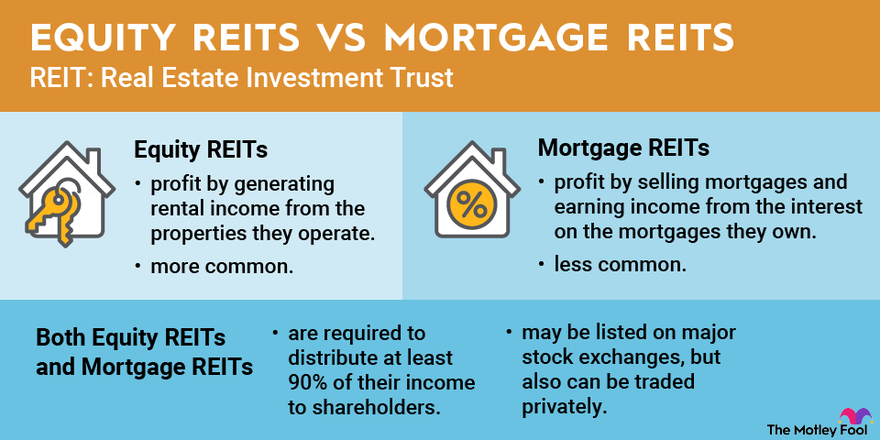Exploring the Different Types of Equity Release Mortgages Available Today
Equity Release home mortgages existing various options for home owners aged 55 and over. equity release mortgages. These economic items satisfy different requirements and preferences, allowing people to accessibility funds from their residential or commercial property. From life time home loans to common recognition home loans, each type provides unique advantages. Comprehending these options is essential for making notified decisions. What factors should one think about when selecting the most appropriate equity Release strategy? The details that comply with might clarify this essential subject
Understanding Equity Release Mortgages
Equity Release home mortgages give property owners, generally those aged 55 and over, with a means to access the value bound in their residential property without requiring to offer it. This monetary alternative allows people to convert a part of their home equity into money, which can be used for various purposes, such as home enhancements, repaying financial obligations, or financing retirement.Equity Release can take various kinds, but it basically entails loaning against the worth of the home while retaining possession. House owners can pick to receive a lump sum or a collection of smaller sized settlements, depending upon their economic needs and preferences.Additionally, the amount readily available for Release is affected by the property's worth, the home owner's age, and certain lending institution criteria. On the whole, recognizing equity Release mortgages is vital for house owners to make enlightened choices concerning using their home's equity while taking into consideration the long-term ramifications.
Lifetime Mortgages
Lifetime home loans represent one of the most popular forms of equity Release. This financial product permits home owners, typically aged 55 or older, to obtain versus the worth of their residential property while preserving ownership. The finance, which is safeguarded versus the home, accumulates rate of interest in time however does not require regular monthly settlements. Instead, the lending and accrued passion are settled when the homeowner passes away or relocates right into long-lasting care.Lifetime mortgages provide flexibility, as debtors can pick to get a swelling amount or choose a drawdown facility, accessing funds as needed. Notably, lots of plans featured a no-negative-equity assurance, guaranteeing that borrowers will never ever owe greater than the value of their home. This attribute supplies peace of mind, allowing people to enjoy their retirement without the concern of depleting their estate. In general, life time home loans work as a sensible alternative for those looking for financial assistance in later life.
Home Reversion Plans

Drawdown Life Time Mortgages
While several property owners look for ways to access their riches, drawdown life time mortgages present a versatile choice that allows individuals to Release funds slowly. This sort of equity Release mortgage allows home owners to obtain versus the value of their residential or commercial property while retaining ownership. Unlike conventional life time home loans, drawdown plans permit debtors to access a portion of their equity upfront and withdraw additional funds as needed, up to a fixed limit.This attribute can be especially useful for those that want to manage their financial resources carefully, as it minimizes passion build-up by only billing passion on the quantities attracted. Furthermore, drawdown life time home mortgages frequently come with a "no negative equity warranty," making certain that borrowers will certainly never owe more than their home's worth. This option suits retirees who prefer monetary safety and security and adaptability, allowing them to fulfill unanticipated expenses or maintain their way of life without needing to market their building.
Enhanced Life Time Mortgages
Boosted Lifetime Home loans supply distinct advantages for eligible home owners seeking to Release equity from their residential properties. Comprehending the qualification requirements is necessary, as it establishes who can take advantage of these specialized fundings. Nevertheless, it is additionally important to evaluate the potential disadvantages linked with improved options, making certain an all-around viewpoint on their usage.
Eligibility Standards Clarified
Comprehending the qualification criteria for Improved Life time Mortgages is necessary for prospective applicants seeking to access the equity in their homes. Normally, candidates have to be aged 55 or older, as this age need is conventional in the equity Release market. Homeowners ought to have a residential or commercial property valued at a minimal threshold, which can differ by lending institution. Notably, the building needs to be their key house and in excellent condition. Lenders frequently assess the house owner's health and wellness standing, as certain wellness conditions might boost qualification and benefits. In addition, applicants must not have existing significant debts secured versus the residential or commercial property. Fulfilling these requirements enables individuals to discover Enhanced Life time Mortgages as a sensible alternative for accessing funds locked up in their homes.
Advantages of Boosted Home Mortgages
After clarifying the eligibility criteria, it ends up being apparent that Enhanced Lifetime Home loans supply several significant advantages for home owners seeking to leverage their residential or commercial property equity. Largely, they provide access to a bigger loan amount compared to typical life time home loans, benefiting those with wellness conditions or age-related elements that increase their life span risk. This boosted loaning ability enables property owners to meet numerous monetary demands, such as home renovations or retired life costs. Additionally, these home mortgages generally include adaptable settlement options, enabling debtors to manage their financial resources extra properly. The no-negative-equity guarantee better guarantees that homeowners will never ever owe even more than their property's worth, supplying satisfaction. Generally, Boosted Lifetime Mortgages provide a compelling choice for eligible property owners looking for monetary options.
Potential Drawbacks Taken Into Consideration
While Improved Lifetime Mortgages supply many benefits, possible downsides call for mindful factor to consider. One substantial concern is the influence on inheritance; the equity released reduces the value of the estate delegated recipients. In addition, these home mortgages can accrue substantial rate of interest gradually, bring about a substantial financial debt that might exceed the initial lending amount. There might likewise be constraints on home alterations or rental, restricting property owners' adaptability. Additionally, boosted products usually need certain wellness conditions, implying not all home owners will certainly qualify. Lastly, taking care of the costs and fees related to these mortgages can be intricate, potentially resulting in unforeseen expenses. Therefore, individuals must thoroughly assess their situation and seek advice from economic experts before continuing.
Shared Gratitude Mortgages
Shared Admiration Home mortgages stand for an unique monetary arrangement that enables house owners to access equity while sharing next page future property value boosts with the loan provider. This strategy supplies potential advantages such as decreased monthly settlements, but it also includes drawbacks that should be meticulously thought about. Recognizing the eligibility requirements is essential for those interested in this option.
Idea Overview
Equity Release home loans, specifically in the type of common appreciation home mortgages, supply homeowners a distinct financial option that allows them to gain access to funds by leveraging the worth of their home. In this setup, a lender gives a lending to the property owner, which is commonly paid off via a share of the residential or commercial property's future gratitude in value. This indicates that when the house owner sells the home or dies, the lender obtains a portion of the increased value, instead than just the first funding quantity. Shared appreciation mortgages can be appealing for those wanting to supplement their earnings or financing significant expenditures while maintaining possession of their home. The monetary effects of shared admiration have to be meticulously taken into consideration by possible borrowers.
Downsides and advantages
Although common gratitude home mortgages can supply significant financial advantages, they also feature notable downsides that potential debtors should think about. These home mortgages allow homeowners to accessibility equity in their buildings while sharing a portion of any type of future gratitude with the lender. This plan can be helpful throughout times of climbing building worths, offering considerable funds without monthly settlements. The main drawback is the possible loss of equity; property owners might look here end up with appreciably decreased inheritance for successors. Additionally, the complexity of the terms can result in misunderstandings pertaining to repayment responsibilities and the percentage of appreciation owed. Therefore, it is necessary for consumers to consider these factors very carefully prior to devoting to a common appreciation mortgage.
Eligibility Requirements
What requirements must homeowners fulfill to receive a common gratitude mortgage? Primarily, prospects must be at least 55 years of ages, assuring they are within the target group for equity Release products. In addition, the home needs to be their main residence and typically valued above a specified minimum threshold, frequently around ? 100,000. Lenders also examine the house owner's financial conditions, consisting of revenue and arrearages, to ascertain they can take care of the home loan sensibly. Notably, the property should be in excellent problem and devoid of considerable lawful encumbrances. House owners must also have a clear understanding of the terms, consisting of exactly how gratitude will be shared with the loan provider upon sale or transfer of the home, as this affects total returns.
Picking the Right Equity Release Option

Frequently Asked Questions
What Age Do I Required to Be for Equity Release?
The age demand for equity Release normally starts at 55 for the majority of strategies. Some service providers might provide options for those aged 60 and above, mirroring varying terms based on individual circumstances and lending institution plans.
Will Equity Release Impact My Inheritance?
Equity Release can influence inheritance, as the quantity obtained plus interest minimizes the estate's value. Beneficiaries may get less than expected, depending on the residential property's gratitude and the overall debt at the time of passing.
Can I Move House With Equity Release?
The question of relocating residence with equity Release develops frequently. Usually, individuals can transfer their equity Release plan to a new residential property, however particular terms might apply, requiring examination with Recommended Reading the lender for assistance.
Exist Costs Related To Equity Release Mortgages?
Fees related to equity Release home mortgages can include plan fees, assessment costs, and legal expenses. Furthermore, there might be very early payment charges, which can influence the general expense and economic effects for the customer.
Exactly How Does Equity Release Effect My Tax Situation?
Equity Release can affect one's tax obligation scenario by potentially enhancing gross income, as released funds are taken into consideration capital. It typically does not sustain prompt tax obligations, making it important to get in touch with a financial consultant for personalized support.
Verdict
In summary, the selection of equity Release home loans offered today provides home owners aged 55 and over several paths to access their property's worth - equity release mortgages. Whether going with a life time mortgage, home reversion plan, or other options, each choice offers distinct benefits tailored to individual economic requirements. Careful consideration and assessment with an economic consultant are important to guarantee the chosen equity Release service aligns with personal objectives and financial scenarios, eventually promoting informed decision-making for a protected monetary future. Equity Release mortgages existing various options for property owners aged 55 and over. Equity Release home mortgages provide homeowners, typically those aged 55 and over, with a means to access the worth tied up in their residential property without needing to sell it. Boosted Life time Home mortgages offer distinct advantages for qualified house owners seeking to Release equity from their homes. Equity Release mortgages, particularly in the kind of common recognition home loans, offer property owners a distinct financial option that enables them to access funds by leveraging the worth of their building. In summary, the range of equity Release home mortgages offered today offers home owners aged 55 and over several paths to access their property's worth
Comments on “Achieving Monetary Flexibility Through Equity Release Mortgages”